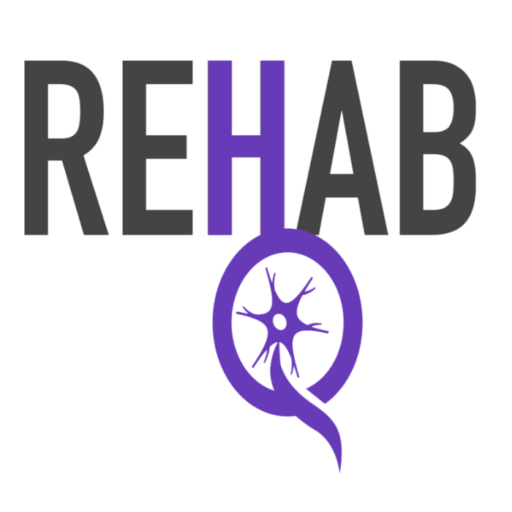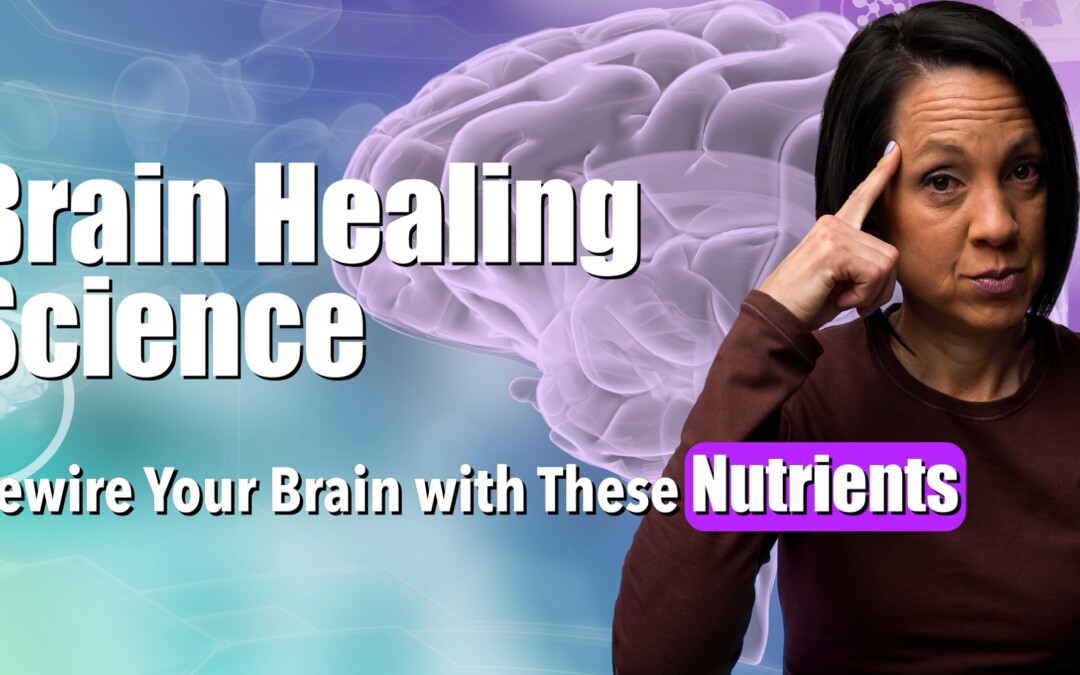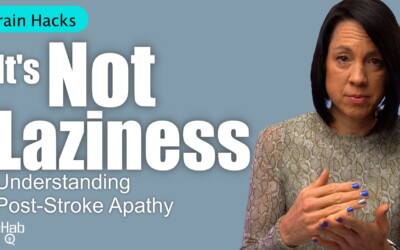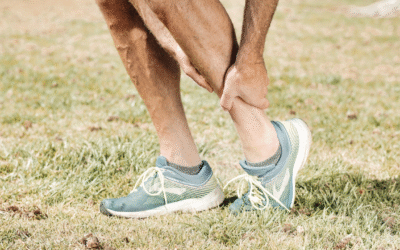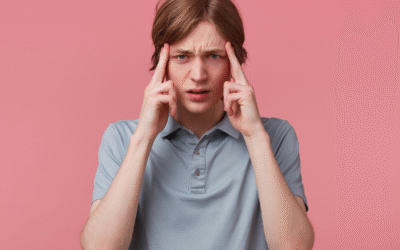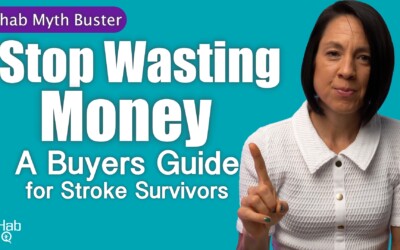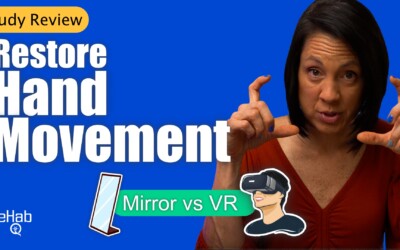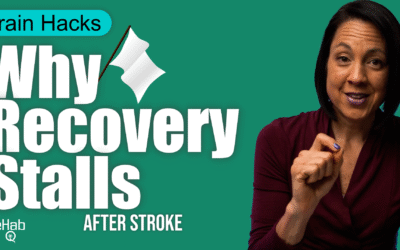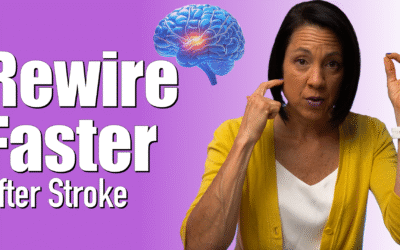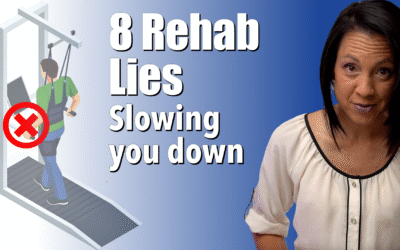Brain Recovery Nutrition
How Diet Fuels Healing and Focus
When it comes to stroke recovery, exercise and rehab often take the spotlight. But what if the foods you eat and the nutrients inside them could also play a powerful role in healing your brain?
That’s exactly what a new paper suggests, and it’s incredibly exciting. Scientists are now looking deeper into how nutrition can impact brain recovery after a stroke. Specifically, how certain nutrients may reduce chronic inflammation, oxidative stress, and mitochondrial dysfunction, three major roadblocks to healing.
Inflammation: Your Body’s Alarm System
Most of us think of inflammation as swelling after an injury, like when you bump your arm and it gets red or puffy. That’s your immune system rushing in to clean up damage and start healing.
This short-term inflammation is good, it’s how the body protects itself.
The problem is chronic low-grade inflammation. This happens when immune cells linger long after the damage is repaired. Instead of helping, they start harming healthy tissues, attacking nerves, joints, blood vessels, and even the brain.
After a stroke, chronic inflammation in the brain is very common. It’s one of the biggest barriers to recovery.
Free Radicals & Oxidative Stress
You’ve probably heard of free radicals. These are unstable molecules that the body naturally produces. In small amounts, they’re useful for signaling the immune system. But too many free radicals can damage healthy cells, DNA, and cell membranes.
That’s where antioxidants come in. Found in many whole foods, antioxidants neutralize free radicals before they can cause harm.
When free radicals overwhelm antioxidants, the body goes into a state called oxidative stress. This has been linked to aging, heart disease, diabetes, and neurodegenerative diseases like Alzheimer’s and Parkinson’s. And yes,oxidative stress plays a major role after a stroke, too.
Mitochondria: The Brain’s Power Plants
Every cell in your body has mitochondria, little engines that turn glucose (sugar) and oxygen into ATP, the energy that keeps cells alive.
But mitochondria aren’t perfect. When they produce energy, they also release free radicals as a byproduct. Normally, the body can manage this. But after a stroke, when oxygen supply is cut off, mitochondria struggle, releasing even more free radicals and accelerating damage.
Neurotransmitters: The Brain’s Messengers
Neurotransmitters are chemical messengers that help neurons (brain cells) communicate. One key neurotransmitter is glutamate, which excites neurons to fire signals.
After a stroke, too much glutamate floods the brain. This overstimulation called excitotoxicity kills neurons and worsens brain injury. But later in recovery, glutamate is actually needed for relearning skills and rewiring the brain. The key is balance, and nutrients can help regulate this process.
What Happens After a Stroke
A stroke cuts off oxygen and glucose to parts of the brain. Neurons begin to die, microglia (the brain’s immune cells) rush in, and a storm of inflammation and free radicals follows.
This leads to:
- Chronic inflammation that lingers long after the stroke
- Blood-brain barrier (the brain’s protective filter) weakens, letting in harmful molecules
- Oxidative stress (Reactive oxygen species (ROS) spike) damaging DNA and proteins
- Mitochondrial dysfunction, draining energy from cells
- Impaired healing, slowing new neuron and blood vessel growth
This explains why even healthy people who suffer a stroke are at higher risk of memory problems or faster cognitive decline later in life.
The Power of “Neuronutrition”
The exciting part is that nutrition can directly influence inflammation, oxidative stress, and mitochondrial function. Researchers are now using the term “neuronutrition”, a dietary approach to support brain recovery.
Here are the key nutrients that can make a difference:
1. Omega-3 Fatty Acids
Found in fatty fish (salmon, mackerel), chia seeds, flaxseeds, walnuts
Reduce inflammation, improve cell flexibility, and boost BDNF (a growth factor that helps neurons rewire)
2. Polyphenols
Found in green tea, leafy greens, berries, and colorful vegetables
Strengthen antioxidant defenses and calm inflammation
3. Essential Minerals
Zinc: Supports antioxidant enzymes
Magnesium: Helps regulate glutamate and supports learning
Copper & Selenium: Activate the body’s antioxidant systems
4. Vitamins
A, C, and E: Antioxidants that fight oxidative stress
Vitamin D: Helps regulate the immune system
B Vitamins: Critical for energy production in brain cells
5. Ketones
Produced during a low-carb or ketogenic diet
Provide the brain with an alternative fuel source and protect mitochondria
6. Fiber & Prebiotics
Found in vegetables, whole grains, and legumes
Feed healthy gut bacteria, which reduces systemic inflammation and supports the gut-brain connection
Why Whole Foods Matter More Than Supplements
Supplements may help fill gaps, but no pill can replace a healthy diet.
Ultra-processed foods fuel inflammation, disrupt blood sugar, and overwhelm the body with empty calories. The first and most powerful step for brain recovery is to:
- Eliminate (or minimize) ultra-processed foods (aim for <10% of daily calories)
- Prioritize protein at every meal (supports muscle and healing)
- Fill your plate with vegetables, fruits, nuts, and seeds for antioxidants and fiber
- Choose healthy fats (omega-3 rich foods, olive oil, avocado)
- Stay balanced with calories (burning roughly what you eat) avoid overeating, which worsens inflammation
Putting It All Together
Stroke recovery isn’t just about rehab exercises, it’s also about what’s happening inside your body. Chronic inflammation, oxidative stress, and weak mitochondrial function can all hold you back from progress.
The good news? Nutrition gives you tools to fight back. By focusing on omega-3s, polyphenols, key minerals, vitamins, fiber, and whole foods, you can create the conditions for your brain to rewire, repair, and recover.
This isn’t about chasing the latest “superfood” trend. It’s about building a lifestyle around whole, nutrient-dense foods that give your brain the tools it needs to heal.
Articles you may be interested in
Stroke Recovery and Apathy: What It Is and How to Overcome It
What’s Really Going On When Motivation Disappears After Stroke Recovering from a stroke is a journey that requires strength, patience, and persistence. But for many stroke survivors, the hardest part isn’t weakness, fatigue, or memory loss. It’s something less visible...
Spasticity or Weakness? Understanding Your Stroke Symptoms
How Can You Tell If It’s Spasticity or Weakness After Stroke? https://youtu.be/3QR9D4rBNhc If you’ve had a stroke, you’ve probably heard a few of these words tossed around: spasticity, weakness, stiffness, foot drop. They might all sound similar, but they each tell a...
Master Ankle Mobility: Exercises for Better Walking
Ankle Mobility Exercises to Boost Balance and Walking Ankle stiffness is one of the most common issues people face after a stroke or any neurologic injury. It can make walking harder, cause your toes to catch, or even affect your balance. But here’s the thing,...
Improve Focus and Attention After Stroke
Stroke Recovery: How to Regain Focus and Attention Faster https://youtu.be/ul0wUgXravo When most people think about recovery after a neurologic injury like a stroke, brain injury, or MS, they often focus on the physical side. Strength. Repetitions. Muscle activation....
Should You Spend Money on Stroke Rehab Devices?
Are Trendy Rehab Treatments and Devices Worth It? Here's My Honest Take https://youtu.be/T69LavHLdIQ Should you be spending your hard-earned money on all those rehab devices popping up in your social media feed? And if so, which one is actually worth it? The truth?...
Restore Hand Movement After Stroke with Mirror Therapy
Mirror Therapy & VR: Stroke Recovery for the Hand https://youtu.be/OeThZMwJt40 If you’ve lost movement in your arm after a stroke, you’ve probably wondered: “Is my arm just weak, or is something deeper going on in my brain?” That’s not because your muscles forgot...
Stroke Recovery Plateau: What to Do
Why Stroke Recovery Stalls and How to Push Through Recovery may feel stuck, but progress is still possible. Here’s how to keep improving after a plateau. https://youtu.be/w6xZZpx7tDY Recovering from a stroke or neurologic injury can feel overwhelming. Walking,...
Why Your Stroke Exercises Aren’t Helping and How to Fix It
Stroke Recovery Tips: When Exercises Don’t Seem to Work https://youtu.be/9r06T9gtsYc Is it possible to be making progress after a stroke or neurologic injury and still feel like your movement is getting stiffer, heavier or just plain harder?Absolutely. And let me tell...
Boost Stroke Recovery: 3 Brain Habits That Actually Work
Want to Rewire Your Brain Faster After Stroke? Try These 3 Habits https://youtu.be/iFcjDtHrrwM If you’ve been on this neuro-recovery journey, you know it can feel like progress is slow. You do your exercises, you follow instructions, but sometimes your brain seems…...
Stroke Recovery Myths Debunked: The Truth About Healing
8 Neuro Rehab Myths That Are Holding You Back (And What to Do Instead) Debunking Common Myths About Neurologic Recovery https://youtu.be/chTfi1d5kn4 If you’ve ever been told that your recovery after a neurologic injury has an expiration date, or if your physical...
